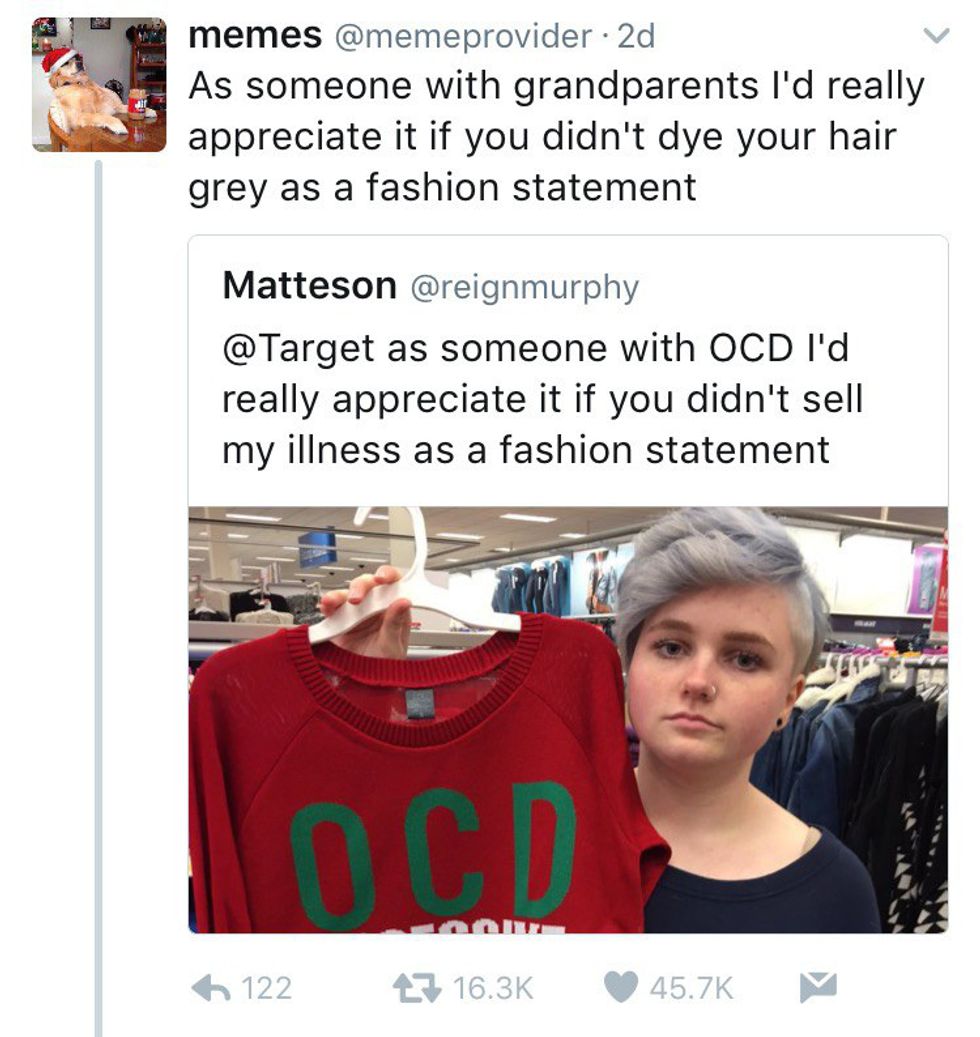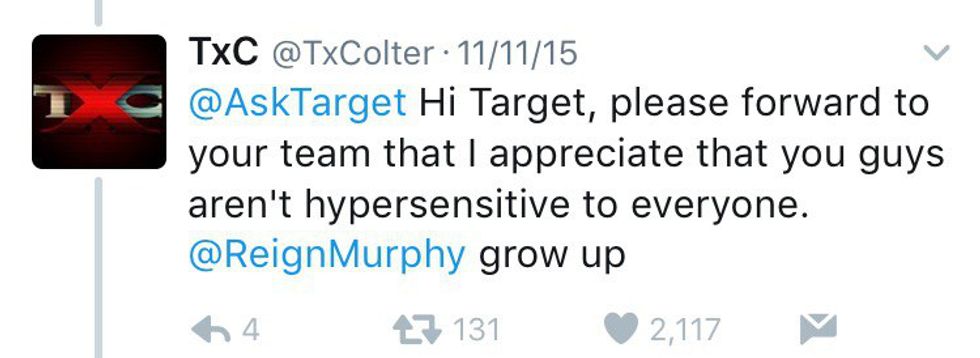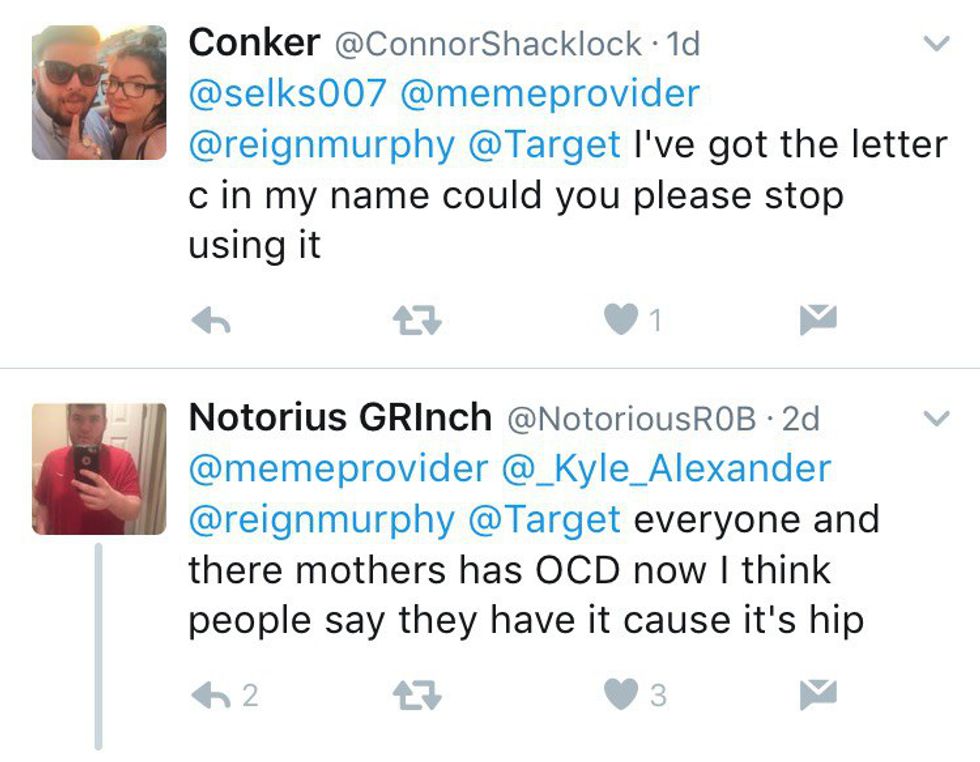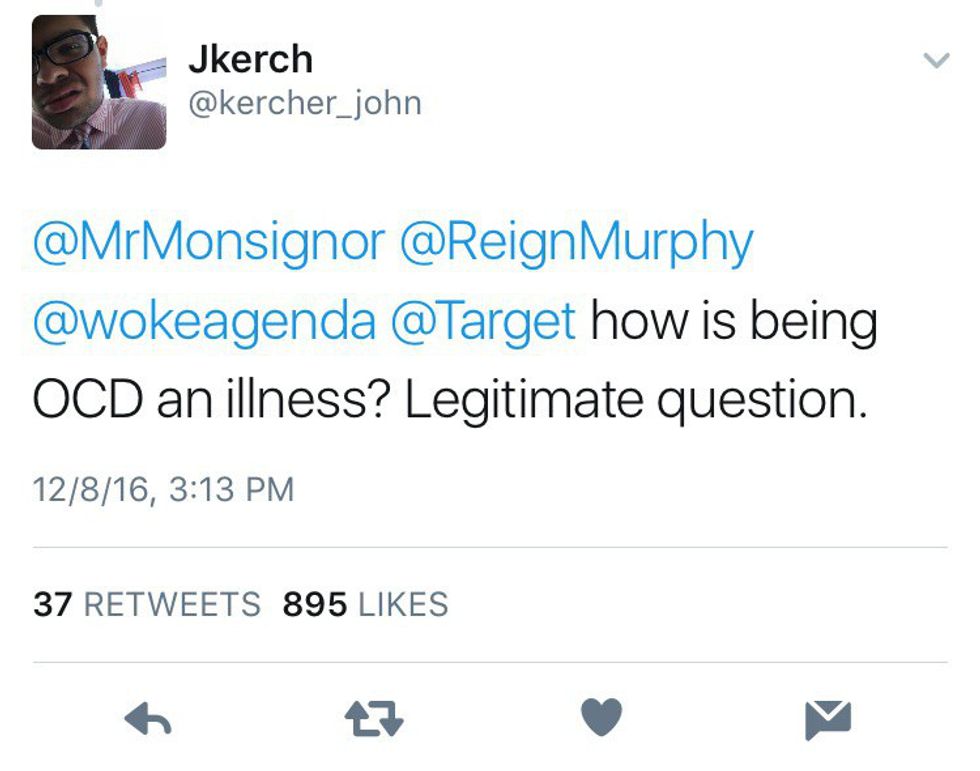It's great that our society has learned to capitalize on humor. Well, when it doesn't offend you. The science of comedy has been a mystery eluding scientists for centuries. The longest standing theory, Superiority Theory, explains that humor is found in the shortcomings of others. A younger theory, Benign Violation Theory, surmises that humor is found in that which may be perceived as a threat, or unsettling, but is actually benign. In short, we are amused by jokes that disadvantage a particular party, they serve as the punchline of the joke. But, where do we draw the line?
Except when they do. Even if they shouldn’t, words do hurt. Even the jokes. Even ones that don't really mean any harm. So, where do we draw the line? Well, in accordance with the precedent set by Target, not at mental health. This time last year, Target received heavy backlash after releasing their holiday apparel, which included the following sweater:
Recommended for you
The sweater, while seemingly harmless, capitalizes on the frequently stigmatized acronym OCD, a mental health disorder characterized by obsessions and compulsions. Unsurprisingly, Target's unintentional trivializing of mental health disorders garnered major media attention. Among responses to the sweater included the following Tweet, by Twitter user @reignmurphy:
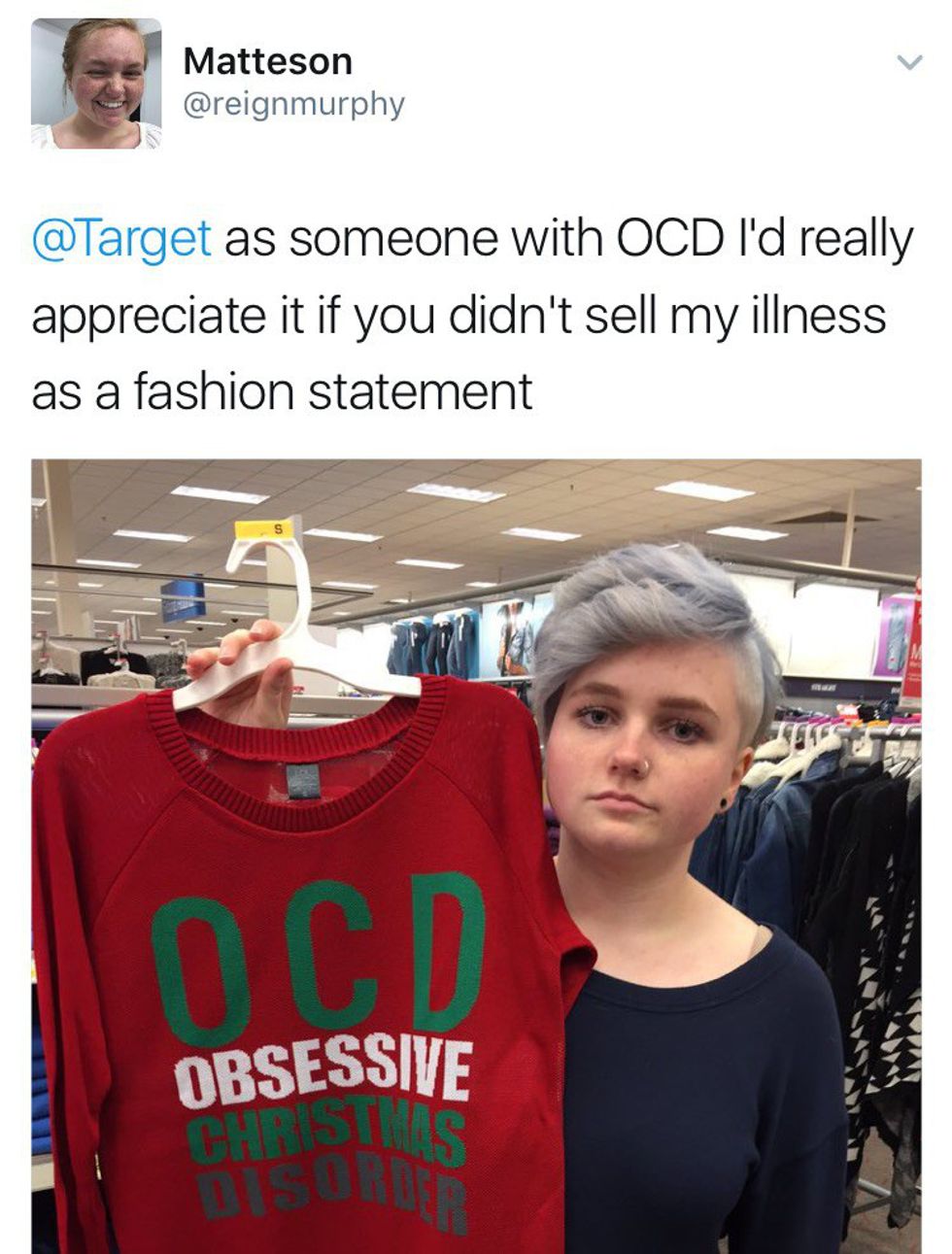
The Twitterverse was divided, producing the following, highly-popularized response which not-so-subtly mocks user @reignmurphy:
Scrolling by the Tweet myself, I couldn't help but let out a little chuckle at the witty response, despite the sensitive nature of the subject. After a moment longer of reflection, I grew distressed. Despite my history of mental illness, as an individual with a phlegmatic temperament, I was not at all offended by Target's controversial sweater. What did worry me, however, were responses to this young woman's Tweet. Particularly, the above Tweet circulated by @memeprovider, with 16,300 Retweets and 45,700 Favorites indicating active cultural acceptance of such demoralizing commentary.
The following are more Tweets attached to the Twitter thread, ridiculing not only Twitter user @reignmurphy, but the mental health community at large:
Supporting this kind of behavior perpetuates mental health stigmas. Even as society begins accepting mental health disorders, external validation is limited to the disorders that the layperson chooses to recognize-- which, surprise, don't include OCD.
Despite the fact that the Twitter thread originated at least a year ago, the open discussion that continues illuminates stigmas surrounding mental health that still remain.
This holiday season, around 3,478 people will successfully commit suicide.
On Christmas Day, suicide will be attempted every 38 seconds, resulting in a total of 94 deaths.
More than 90 percent of suicides are committed by individuals with a mental health disorder. Mental health can't wait. It doesn't discriminate, and it doesn't stop for anybody or anything. Mental health may, or may not be offended by your insensitive jokes. But, is it even worth the risk when lives are at stake?
This holiday season, choose compassion.





